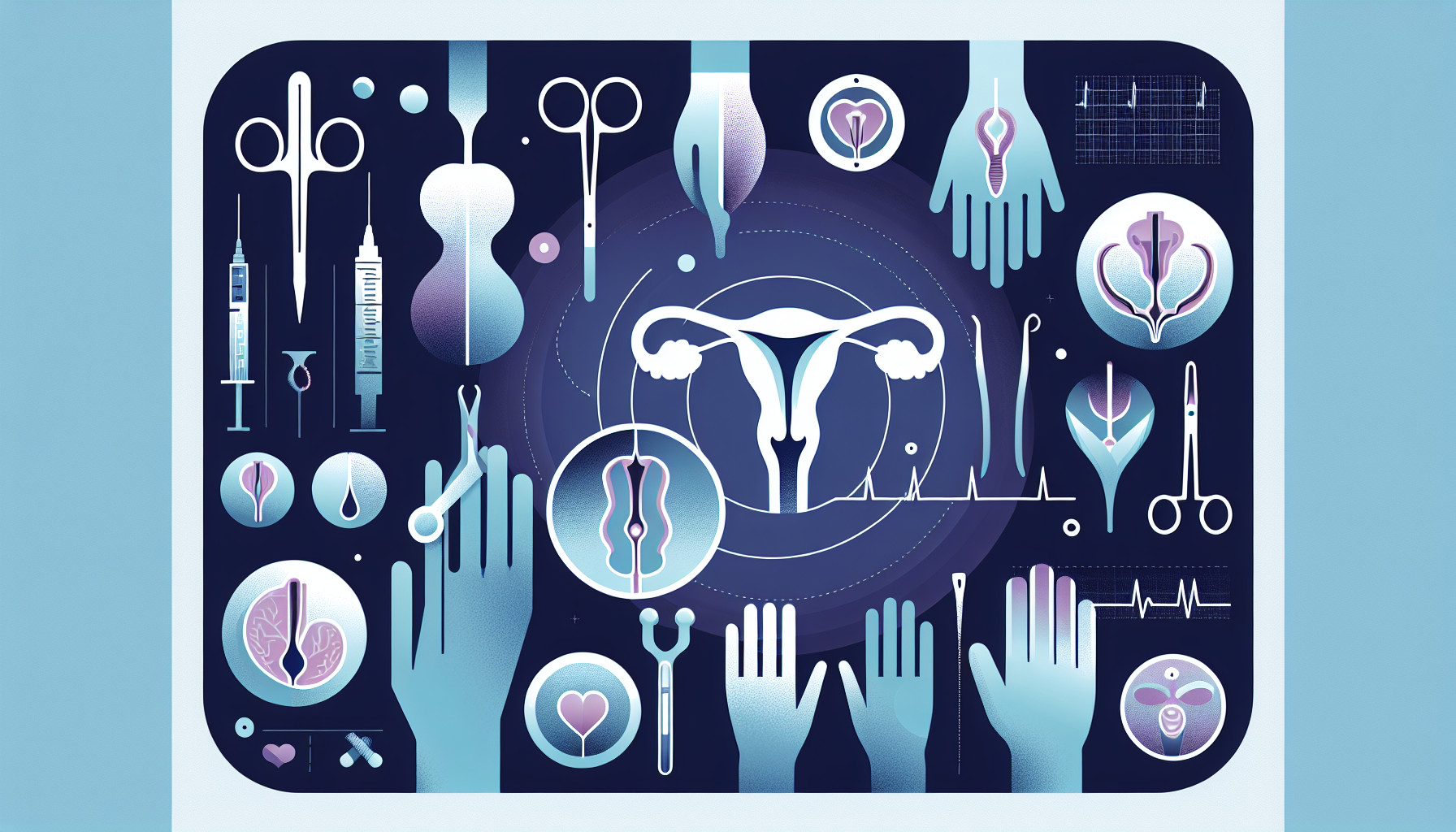Our Summary
This research paper discusses a rare case of a female patient with Mayer-Rokitansky-Küster-Hauser (MRKH) syndrome, a condition where a woman is born with an underdeveloped or absent vagina and uterus. This 17-year-old patient was already known to have only one kidney. She was diagnosed with MRKH syndrome after she consulted a gynecologist.
Because of repetitive intercourse through the urethra, the patient’s urethra was abnormally enlarged or dilated. This ruled out the usual treatment for MRKH patients, which is self-performed vaginal dilation to create a new vagina (neovagina).
Instead, the patient underwent a different surgical procedure called Davydov vaginoplasty to create a neovagina. This operation was successful, with no complications after the surgery, and the patient was fully able to control her urinary function.
The paper concludes by emphasizing the need for education about the damaging effects of intercourse through the urethra. It also calls for more case reports to determine the best treatments for MRKH patients to lead a normal sexual life.
FAQs
- What is Mayer-Rokitansky-Küster-Hauser (MRKH) syndrome?
- What is Davydov vaginoplasty and how was it used in the treatment of the MRKH patient with urethral dilatation?
- What are the potential consequences of intraurethral intercourse in patients with MRKH syndrome?
Doctor’s Tip
A helpful tip a doctor might tell a patient about vaginoplasty is to avoid any type of intraurethral intercourse as it can lead to complications and damage. It is important to follow postoperative care instructions and attend follow-up appointments to ensure proper healing and a successful outcome.
Suitable For
Patients with Mayer-Rokitansky-Küster-Hauser (MRKH) syndrome who have an underdeveloped or absent vagina and uterus are typically recommended vaginoplasty. In cases where patients are unable to undergo patient-performed vaginal dilatation due to complications such as urethral dilatation, alternative surgical options like Davydov vaginoplasty may be recommended. It is important for healthcare providers to educate MRKH patients on the potential consequences of intraurethral intercourse and to explore appropriate treatment options for a normal sexual life. More cases should be reported to further establish the best practices for managing MRKH syndrome.
Timeline
- Patient is diagnosed with Mayer-Rokitansky-Küster-Hauser (MRKH) syndrome at 17 years old
- Patient experiences urethral dilatation due to repetitive intraurethral intercourse
- Patient is deemed unable to create a neovagina through self-performed vaginal dilatation
- Davydov vaginoplasty is successfully performed as an alternative treatment
- Patient experiences no postoperative complications and is fully continent after surgery
- Patient and healthcare providers are educated on the damaging consequences of intraurethral intercourse
- More cases need to be reported to establish the best treatment options for a normal sexual life.
What to Ask Your Doctor
- What is involved in the Davydov vaginoplasty procedure?
- What are the potential risks and complications associated with the procedure?
- What is the expected recovery time and postoperative care needed?
- Will I still be able to maintain continence after the surgery?
- How soon after the surgery can I engage in sexual activity?
- Are there any long-term effects or considerations I should be aware of?
- Will I need any additional treatments or follow-up care after the surgery?
- How successful is the Davydov vaginoplasty in treating MRKH syndrome?
- Are there any alternative treatment options available for MRKH syndrome?
- Can you provide me with information on support resources for MRKH patients?
Reference
Authors: Vitols J, Lidaka L. Journal: Case Rep Obstet Gynecol. 2024 Jun 8;2024:9498667. doi: 10.1155/2024/9498667. eCollection 2024. PMID: 38962289
